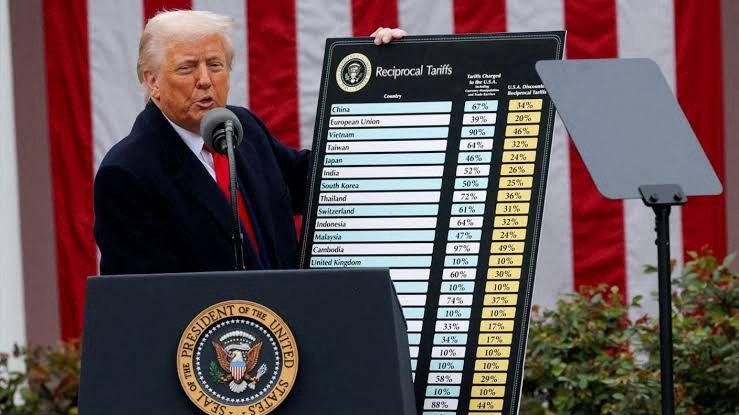US-imposed tariffs on Pakistan’s exports expected to dampen GDP growth and trade, IMF report reveals
Key Takeaways:
1. US Tariffs to Lower Pakistan’s Export Growth: The 29% tariff on Pakistani goods by the US is expected to reduce Pakistan’s GDP growth by 0.3 percentage points in FY26.
2. Broader Economic Risks: Indirect effects such as tighter global financial conditions and trade uncertainty could further challenge Pakistan’s economy.
3. Mitigating Factors: Falling commodity prices and reduced import demand may help moderate the negative impact on Pakistan’s balance of payments and inflation.
Islamabad, Pakistan – The International Monetary Fund (IMF) has issued a cautionary note regarding the adverse effects of the recent tariffs imposed by former US President Donald Trump on Pakistan’s economy.
According to the IMF’s latest review under the Extended Fund Facility (EFF), these tariffs are likely to weigh heavily on Pakistan’s export sector and overall economic growth in the coming fiscal years.
The IMF report highlights that the 29% tariff increase on Pakistani goods by the US, announced on April 2, 2025, could reduce Pakistan’s GDP growth by around 0.3 percentage points in FY26. Although Pakistan’s export sector accounts for roughly 10% of its GDP, the US remains its largest trading partner, especially for textiles and apparel, which form the bulk of Pakistan’s exports to America.
While the tariffs may be subject to change through ongoing negotiations, the IMF points out that many of Pakistan’s competitors, such as Bangladesh, China, India, and Vietnam, are also facing substantial tariffs on similar products. This global trade tension adds complexity to Pakistan’s export challenges.
Beyond direct impacts, the IMF underscores broader indirect effects, including tighter global financial conditions, potential declines in remittances, and increased uncertainty in trade policies. These factors could further strain Pakistan’s fragile economic recovery.
However, the IMF also notes some mitigating factors. The recent drop in global commodity prices and a slowdown in domestic economic activity are expected to reduce Pakistan’s import bill, partially offsetting the negative balance of payments impact. Inflationary pressures are projected to remain modest due to these factors.
The report also mentions a sharp rise in Pakistan’s sovereign spreads since the tariffs were announced, signaling increased risk perception among investors. Given the limited near-term access to external financing, the IMF stresses the importance of allowing the exchange rate to adjust if capital outflows intensify.
In response, Pakistan’s Finance Minister Muhammad Aurangzeb has expressed the country’s willingness to increase imports from the US and work towards removing non-tariff barriers to mitigate the impact of the tariffs.




